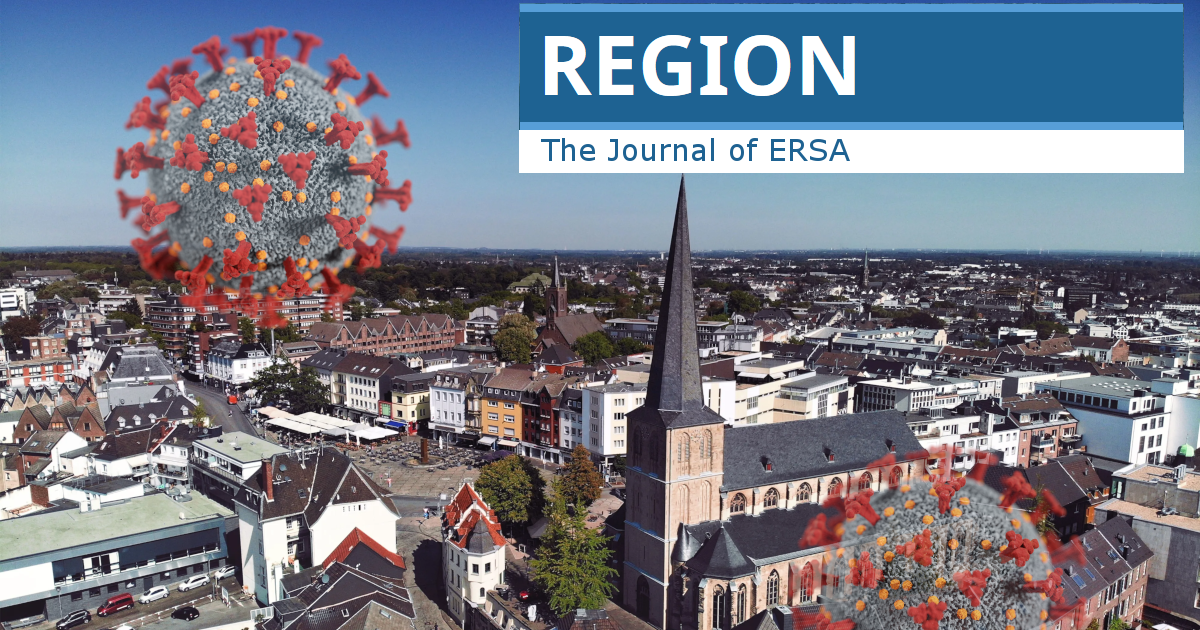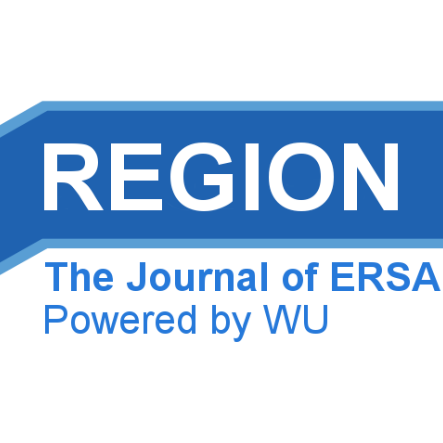The promise of endogenous potential in times of crisis
Analysis of the effects of the Corona pandemic on the socio-economic embeddedness in Local Economies
DOI:
https://doi.org/10.18335/region.v8i2.345Abstract
The measures against the spread of the Covid-19 virus have massive effects on local economies. By means of an explorative qualitative case study in deprived neighbourhoods in the Middle Lower Rhine region of Germany, this paper explicitly aims at examining the Corona pandemic’s impact on their endogenous potential. In this context, the focus is on organisations whose main contribution lies in the fulfilment of the function of integration and communication. The analysis is based on theoretical concepts of the local economy, but it also refers to crisis as well as transition research, especially the multilevel perspective framework. By means of desktop research, a focus group with multipliers involved in local economic contexts as well as thirteen guideline-based interviews with the heads of local organisations, the subsequent analysis reveals the partially counteracting effects of the Corona pandemic on the organisations’ socio-economic embeddedness. On the one hand, they are threatened by economic bottlenecks, by pending social consequences of a longer period without or with minimized offerings as well as by fear of contagion and exhaustion. While the organisation’s perceived level of urgency varies greatly, their level of uncertainty is generally high. On the other hand, organisations of the local economy benefit from a positive push in the areas of digitization and new life and working environments (home-based work), as well as from a strengthening of local solidarity and cohesion.

Downloads
Published
How to Cite
Issue
Section
License
Copyright (c) 2021 Anna Herzog, Marieke Vomberg

This work is licensed under a Creative Commons Attribution-NonCommercial 4.0 International License.
REGION is an open journal, and uses the standard Creative Commons license: Copyright We want authors to retain the maximum control over their work consistent with the first goal. For this reason, authors who publish in REGION will release their articles under the Creative Commons Attribution license. This license allows anyone to copy and distribute the article provided that appropriate attribution is given to REGION and the authors. For details of the rights authors grant users of their work, see the "human-readable summary" of the license, with a link to the full license. (Note that "you" refers to a user, not an author, in the summary.) Upon submission, the authors agree that the following three items are true: 1) The manuscript named above: a) represents valid work and neither it nor any other that I have written with substantially similar content has been published before in any form except as a preprint, b) is not concurrently submitted to another publication, and c) does not infringe anyone’s copyright. The Author(s) holds ERSA, WU, REGION, and the Editors of REGION harmless against all copyright claims. d) I have, or a coauthor has, had sufficient access to the data to verify the manuscript’s scientific integrity. 2) If asked, I will provide or fully cooperate in providing the data on which the manuscript is based so the editors or their assignees can examine it (where possible) 3) For papers with more than one author, I as the submitter have the permission of the coauthors to submit this work, and all authors agree that the corresponding author will be the main correspondent with the editorial office, and review the edited manuscript and proof. If there is only one author, I will be the corresponding author and agree to handle these responsibilities.




